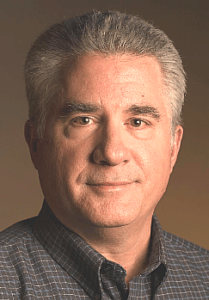“Blessed to be a blessing.”
I’ve heard it a million times. You have, too, if you go to the kind of church that recycles catchy slogans (which is most churches).
Sure, it’s a cliche. But I like it. Because it immediately focuses on the reason God blesses us, which is not so we may wallow in our blessings, like pigs in a mudhole, while others go without. God loves us and wants us to love him, then others. That’s why we’re here.

Erich Bridges
It goes back to the Great Commandment, as expressed by Jesus when an expert on Jewish law tested him: “Teacher, which is the greatest commandment in the Law?”
“Jesus replied: ‘Love the Lord your God with all your heart and with all your soul and with all your mind.’ This is the first and greatest commandment. And the second is like it: ‘Love your neighbor as yourself.’”
“Blessed to be a blessing” as a cause and effect goes back even further than that, if you study salvation history. God first appeared to Abram in Genesis 12 and told him: “Go from your country, your people and your father’s household to the land I will show you. I will make you into a great nation, and I will bless you; I will make your name great, and you will be a blessing. I will bless those who bless you, and whoever curses you I will curse; and all peoples on earth will be blessed through you.”
“Jesus’ command to his followers to make disciples among all nations in Matthew 28 is the affirmation and fulfillment of God’s original promise, not the introduction of it.”
Mission folks love that passage, because it marks the real beginning of the biblical “Great Commission.” Jesus’ command to his followers to make disciples among all nations in Matthew 28 is the affirmation and fulfillment of God’s original promise, not the introduction of it. God’s plan from the beginning was to bless Israel so that Israel might bless all the peoples of the world with the gospel of salvation through Israel’s Messiah.
The church is always getting distracted or sidetracked from its divine mission to be a global blessing, however. The command seems to be falling into neglect in American churches these days — even among self-professed evangelicals, who take their name from the Greek word for gospel, evangelio.
Missions among the nations always has been a hard sell for Americans. “The nations” are a long way off, even in the age of air travel. Sending and supporting missionaries is expensive. Many of us have ancestors who fled some of those far-off places for a better life, or to escape religious persecution. Why go back? And there are the typical excuses:
- I’m not “called” to be an overseas missionary.
- There are plenty of lost people right here.
- We shouldn’t force our faith on others.
- We’ll get around to it after we build our new recreation facility.
Then came 9/11 and the Age of Terror, adding a whole new layer of fear and danger to mission work, particularly in the Muslim world. Bring the missionaries home, many supposedly “evangelical” churches told mission agencies — as if cross-cultural missions hasn’t been a risky proposition since the Book of Acts.
Nowadays, some conservative evangelical folks don’t even want “the nations” — think immigrants and refugees — coming here. Close the borders, they say. We can’t afford ’em. Don’t have room for ’em. They’ll steal our jobs, and they might be terrorists. Send ’em back to starve and/or go to hell wherever they came from.
But that doesn’t let so-called progressive Christians off the hook. Many of them seem to regard evangelical missionary work as a distasteful, embarrassing holdover from the church’s racist, colonialist past. “Who are we to impose our white, Western gospel on the rest of the world?” they ask. “Besides, we don’t even believe in it ourselves anymore.”
They don’t necessarily add that last part. But they’re thinking it, is my guess.
Admittedly, I’m a neophyte when it comes to understanding “progressive” or “emergent” or “deconstructed” Christianity, so please forgive my ignorance. But so far, it strikes me as a tasteless stew of warmed-over universalism, Buddhism for Dummies, leftist politics and pop psychology.
Who is interested in that bizarre concoction overseas? Not many spiritually starving folks I’ve met in my travels. Social justice, yes. Many paths to God, no. They hunger for the Truth, and Jesus Christ offers it.
“We’ve entered a new golden age of missions that far surpasses anything seen before in church history.”
If you haven’t been paying attention to the wildfire spread of the gospel globally, we’ve entered a new golden age of missions that far surpasses anything seen before in church history. Evangelical and Pentecostal movements are sweeping through Latin America and Africa. China has become a major center of Christianity — and sender of missionaries — since the Cultural Revolution’s vicious persecution of believers produced the unintended consequence of a passionate, truly indigenous Chinese church.
Muslims all over the Islamic world are having dreams and visions of Jesus and seeking out Christians to learn more. Hindus are hearing the gospel throughout South Asia. Tribal peoples are embracing Christian faith in many places. Unreached people groups are being reached for the first time with the good news of Christ. The center of Christianity long ago moved East and South, and missionaries from the developing world are taking over the task of global evangelization.
Don’t get me wrong; the Western church is still a major engine of missions through funding, training and encouragement. But we’re no longer in charge of the task — nor should we be. Christianity has become a truly global faith, not just a Western one.
At such a historic moment for the church universal, why, pray tell, are American Christians fighting over nonessentials and turning away from the world?
In truth, the biggest enemy of missions is — and always has been — indifference. Far too many American Christians know there’s a truth-starved world out there. They just don’t care.
To those who have ears to hear: We are blessed to be a blessing – everywhere. Wake up!
Erich Bridges, a Baptist journalist for more than 40 years, retired in 2016 as global correspondent for the Southern Baptist Convention’s International Mission Board. He lives in Richmond, Va.
Other articles in this series:
‘We’re so blessed!’ | Opinion by Mark Wingfield
Blessing is not about good fortune; it is akin to God’s love | Opinion by Ann Bell Worley
Original blessing, the #blessed hashtag, and what it really means to be blessed | Opinion by Andrew Daugherty
When being a ‘blessing’ comes with some baggage | Opinion by Amber Cantorna
Seeing mortality as a blessing | Opinion by Cynthia Astle
Blessed by life’s diversions | Opinion by Jeff Hampton
Blessing is naming what is true | Opinion by Erin Robinson Hall
The blessing of provocation | Opinion by Molly T. Marshall


